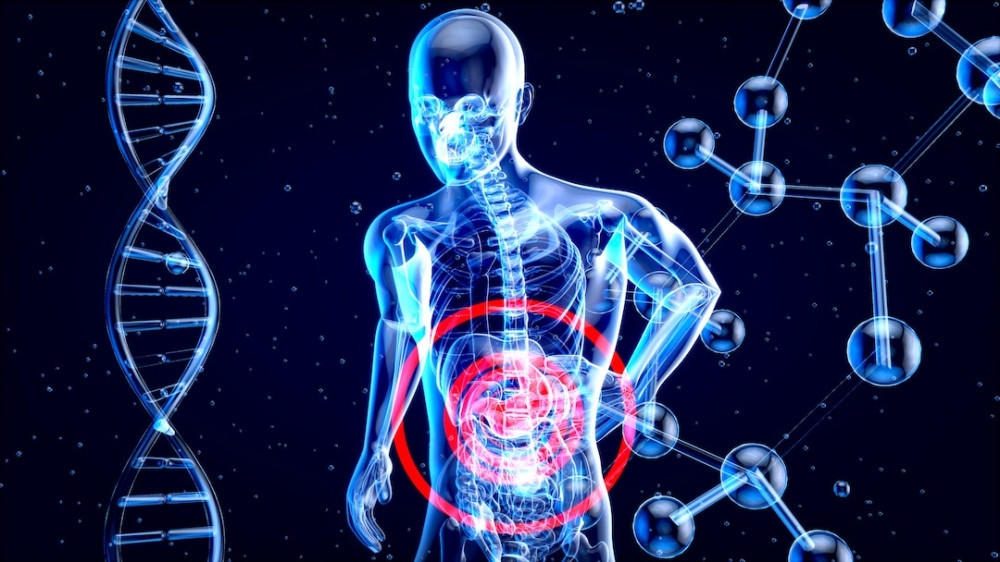Probiotics and GERD
Let’s talk about probiotics and GERD. But before we do, let me make one thing clear. GERD. Is. Not. Fun. I have a close friend who suffers very badly from her GERD. When we would go out to eat, there would be certain foods that she would completely stay away from. Not because they’re unhealthy. But because they would just trigger her GERD. Other times, she can’t even sit after she eats because of that acid regurgitation that would come up after a meal. This is why I want to write this article. To see if probiotics can help GERD?
What is GERD?
If you’re reading this, you probably have experienced GERD or know somebody who experienced GERD. But let’s talk a little bit about what it is. GERD stands for gastroesophageal reflux disease. This is a very common digestive disorder experienced by the majority of the general population. So what is it actually? I would bet that most of us here had experienced heartburn or acid reflux at least once. GERD is like the upgrade version of that. When stomach acid comes up the throat, and you start feeling the burn. That’s heartburn, one of the most recognizable symptoms of GERD. But a single episode of heartburn doesn’t make it GERD. It becomes GERD when it happens often enough and severe enough that it’s starting to affect the quality of life. Going back to the story I told about my close friend. Her GERD is affecting how she eats. Her GERD is affecting how she sits. It can be pretty debilitating.
So are there reliefs for GERD? Yes, there are. There are medications that can be prescribed to help. But sometimes, just medication is not enough. Diet and lifestyle matter. Personally, I have seen people who are taking those medications and still don’t have their GERD under control. So now we have to look to see if there are any other options that can help control GERD. And this is where probiotics come in. So what are probiotics, and how would they help?
HOW WOULD PROBIOTICS HELP?
Probiotics are health supplements that contain active or live microorganisms that can provide a health benefit to the host. The theory behind probiotics is that these microorganisms go in and help replenish or help support the good bacteria in your gut. Further studies have shown that not only probiotics did this, but they also work with the cells in your digestive system to boost the gut immune response. So, in theory, because they help boost our gut immune system as well as help strengthen the good bacteria inside our gut, they should help with gastrointestinal problems that cause inflammation. This is why a lot of scientists have been looking into the potential benefits of probiotics in various types of gastrointestinal diseases like IBS and Crohn’s disease. But what about GERD? Let’s look and see what kind of scientific data we have.

What Scientific Data do we have?
There is a systematic review study that was published on Nutrients in 2020. This study was done by DuPont Nutrition and Biosciences in Finland. In this systematic review, they included over 14 articles, which look at 951 patients. Eight different probiotic products were used for these 14 articles. Some studies were done with the fermented dairy product, some with the tablet or capsule forms of a probiotic supplement, and some with probiotics that come in powder form. A lot of different strains were taken.
The list of the strains in those antibiotics in these studies.
- Bifidobacterium bifidum
- Bifidobacterium lactis
- Bifidobacterium longum
- Lactobacillus casei
- Lactobacillus plantarum
- Lactobacillus rhamnosus
- Lactobacillus acidophilus
The result was pretty promising. What they found was that 11 out of 14 studies reported probiotic benefits in the improvement of symptoms of GERD. These symptoms include regurgitation, heartburn, dyspepsia, nausea, abdominal pain, and gas-related symptoms like belching. Gurgling or burping. So this systematic review concludes that there are certain positive prospects for using probiotics to help improve the symptoms of GERD. One caveat is that due to the low number of study participants in each studying, statistically, we cannot say for certain that probiotics improve the symptoms of GERD for everyone. The results are definitely encouraging. And as far as side effects go, the author of this systematic review reports that there are none reported to be probiotic-related.
I also want to mention that there is another systematic review that I found. It was published just recently, in December of 2022. I’ve decided not to include that study in this article because the quality of the studies that they look at isn’t very consistent. But if you want to read up on it, the title is “What is The Efficacy of Dietary Nutraceutical and Probiotic Interventions For the Management of Gastroesophageal Reflux Disease Symptom: A Systematic Literature Review and Meta-analysis. The link to the study is 10.1016/j.clnesp.2022.09.015.
Verdict
I don’t think there’s any clear verdict that can be given as far as the use of probiotics in GERD. The study that we looked at today did mention that probiotics are likely safe to be used in patients with GERD. Some studies have found it to be very beneficial. Like in that study, 11 out of 14 studies reported that they have seen benefits from probiotics in symptoms of GERD. That makes it just about 79% of the studies seeing some improvement. That is definitely encouraging. We still have to take this result with a grain of salt, though!
So, in conclusion, I would say that the use of probiotics in GERD can potentially help improve your GERD symptoms, whether it be regurgitation, heartburn, or gas. The studies have not shown any increase in harm or side effects, So probiotics are likely safe. I think what we need to pay attention to right now is what strains are being used for these studies. And personally, if I have to get a probiotic for GERD, I would go with the probiotics that contain the strains from the list above.
Obviously, if you have any questions or concerns about your health. I would advise you to talk to your healthcare provider about it. If you suspect that you have GERD that is not treated and it is affecting your quality of life, I would certainly recommend that you go and see a healthcare professional.
Reference:
- Cheng, J., & Ouwehand, A. C. (2020). Gastroesophageal Reflux Disease and Probiotics: A Systematic Review. Nutrients, 12(1), 132. https://doi.org/10.3390/nu12010132
- Markowiak, P., & Śliżewska, K. (2017). Effects of Probiotics, Prebiotics, and Synbiotics on Human Health. Nutrients, 9(9), 1021. https://doi.org/10.3390/nu9091021





